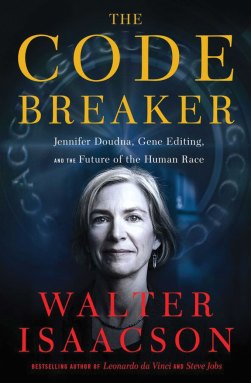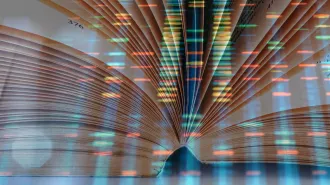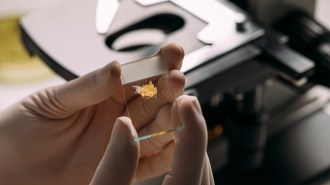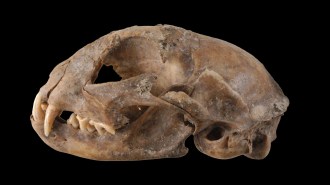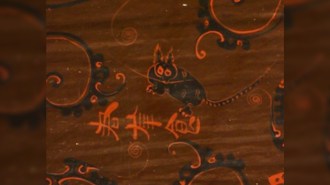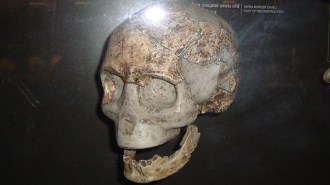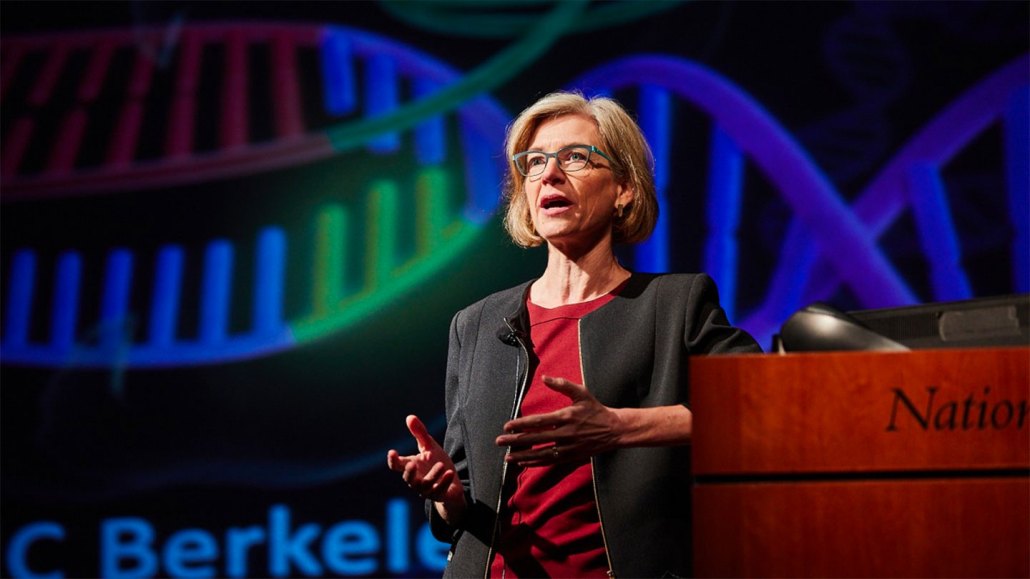
Jennifer Doudna, one of the discoverers of the gene-editing tool known as CRISPR, is the subject of a new biography.
Ernesto Del Aguila/NHGRI
The Code Breaker
Walter Isaacson
Simon & Schuster, $35
With the slightest touch, the fernlike vine known as sleeping grass folds over on itself, like a Venus flytrap closing its flaps. “What causes the leaves to close when you touch them?” a young Jennifer Doudna wondered growing up in Hawaii. Noticing that curiosity, Doudna’s father left James Watson’s book The Double Helix on her bed one day. Doudna sped through the pages, absorbing how Watson and Francis Crick deciphered the structure of DNA. Today, she credits the book and her insatiable inquisitiveness for driving her to become a scientist and for setting the foundation for her to codiscover, nearly four decades later, a set of molecular scissors called CRISPR that can edit the genetic blueprint of life. Watson would later call CRISPR “the most important discovery since DNA’s structure,” Walter Isaacson writes in The Code Breaker.
The book, both a biography of Doudna and a deep dive into the ethics of genetic engineering, is written for people who may have heard of CRISPR but don’t know much about the history of its development. The book digs into the fierce patent battles that have ensued between the University of California (Doudna is at the Berkeley campus) and the Broad Institute of MIT and Harvard, where other researchers, most notably Feng Zhang, were also developing the gene-editing tool. The tone and style of the book’s first half mimic The Double Helix, setting up the scientific process as a detective story, one focused first on understanding how bacteria rely on CRISPR to fend off viral infections and then on how scientists transformed that natural bacterial defense system into a tool that allows humans to edit their own DNA.
While The Code Breaker starts off as a page-turner, the latter half is more tedious, with tangents that loosely weave together the battle over the claim to discovering CRISPR and the ethical questions around using it. Those questions came to the fore in 2018, after the birth of two babies whose genes had been edited while still embryos (SN: 11/27/18). Impressively timely, Isaacson bounces from concerns over “designer” children to Doudna’s shared 2020 Nobel Prize in chemistry (SN: 10/7/20) to her latest race against rivals: adapting CRISPR into a tool that can quickly detect the virus that causes COVID-19, or one that could potentially thwart the virus’s infection of human cells (SN: 8/31/20). No longer is the race for patents and prizes, Isaacson writes, but one to save humankind from the coronavirus and possibly other ills.
Buy The Code Breaker from Bookshop.org. Science News is a Bookshop.org affiliate and will earn a commission on purchases made from links in this article.
